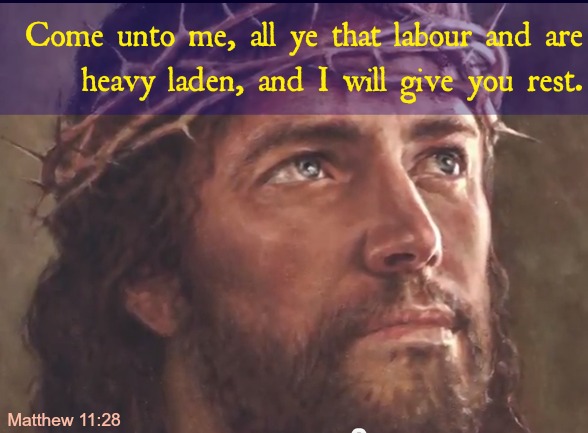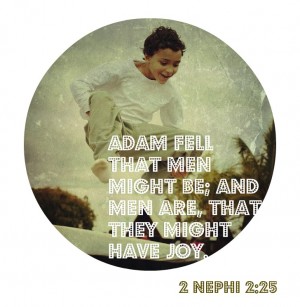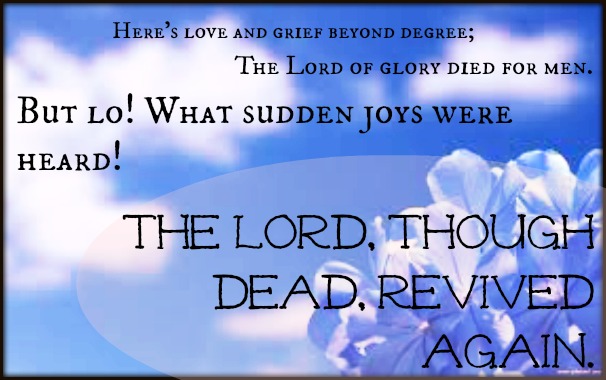I grew up in a Christian family, as a member of The Church of Jesus Christ of Latter-day Saints; therefore Easter was always celebrated. There was a good mixture in our home of balancing the fun traditions of coloring eggs and getting surprises from the Easter Bunny, and always being mindful of the true meaning of Easter. I always had a new dress to wear to church on Easter Sunday, and we would gather as a family for a special meal. Just like Christmas, I grew up knowing it was all about Jesus. Still, as children we can’t help but get caught up in the fun of holiday traditions. Even as adults we still enjoy those things.
Merging into adulthood, I always knew the meaning of Easter, and I knew in my heart that it was true. Over time my belief that Jesus had actually died and then rose from the tomb on the third day gradually evolved into a knowledge that it was true. I can’t comprehend how He did it. I just know that He did. And I don’t have to understand it to know it’s true, just like I don’t have to know how a cell phone works in order to make a call. Truth is truth, even if we don’t fully understand it; that’s something I’ve learned with conviction over the years. And when we allow truth to come into our hearts, it’s a remarkably peaceful feeling. Traveling from belief to truth over the principle of the Resurrection was a slow journey for me, but it was a journey that brought me to a sure knowledge. And once that knowledge was firmly settled into my spirit, I never felt the need to question it.
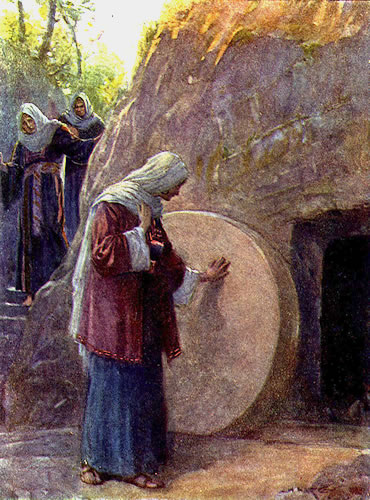 As a mother and grandmother, I’ve carried on the same balance of traditions. We do the fun things together as a family, but for me the most important part of Easter Sunday is my own mindfulness of considering what my Savior did for me and for those I love. I can express my devotion to my Savior by attending my church meetings on Sunday rather than choosing to be somewhere else. And my truest devotion is to strive to live a Christian life every day of the year.
As a mother and grandmother, I’ve carried on the same balance of traditions. We do the fun things together as a family, but for me the most important part of Easter Sunday is my own mindfulness of considering what my Savior did for me and for those I love. I can express my devotion to my Savior by attending my church meetings on Sunday rather than choosing to be somewhere else. And my truest devotion is to strive to live a Christian life every day of the year.
I recall very clearly the year that I woke up on the morning of Easter Sunday, and while I was working myself up to getting out of bed, I considered all of the things I knew about the Resurrection of Jesus Christ and how precious it was to me. Then I had a sudden epiphany, one of those moments when you feel as if a light bulb has turned on in your head. For a number of reasons, Easter had now become very personal. Those reasons amounted to the number of people I love who are now deceased. I had never questioned that their spirits lived on, and that a day would come when the body and the spirit would be reunited for all of us—because of the fact that Jesus had overcome death. But something in that moment made it click for me.
I had seen my mother deteriorate from cancer. I saw her grow thin and sallow. I saw her skin and eyes turn deep yellow from liver failure. And I was there when she took her last breath. I saw my father decline from old age to a point where life held no joy for him. He was crippled by arthritis, and struggling with other ailments. And he was lonely. He’d been ten years without his wife with whom he’d shared 53 years. I was with him when the doctors told him that the pneumonia wasn’t responding to any of the treatments he was being given, and this would be the end. My father was relieved. He was ready. He wasn’t the daddy who used to tickle me, or the grandpa who used to put my children up on his shoulders. He was elderly and crippled. With both my parents I observed the unalterable fact of life: death. We as mortals deteriorate. Whether by disease or old age, we all eventually go. To see a human body reduced to such waste, and the spirit within it trapped by the helplessness of the process, we have no choice but to accept that eventually we all have to leave our bodies behind. There is hardly a person living who hasn’t lost at least one person dear to them, and often death comes in tragic and untimely ways. Such loss is incomprehensible, and it would be inconsolable if not for the miracle of knowing that the separation isn’t permanent.
I don’t wish to be macabre, but the reality of death was further brought home to me following my brother’s suicide. His body wasn’t found for three days, and we as his family were left to go through his things—in the same enclosed space where the body had been. It was there that I experienced the smell of death. It’s given me some empathy for the story of Lazarus in the Bible. If he’d been dead for four days before they rolled back the stone of his tomb so that Jesus could raise him from the dead, how must that have been? How much more of a miracle it surely was simply because of the days that had passed!
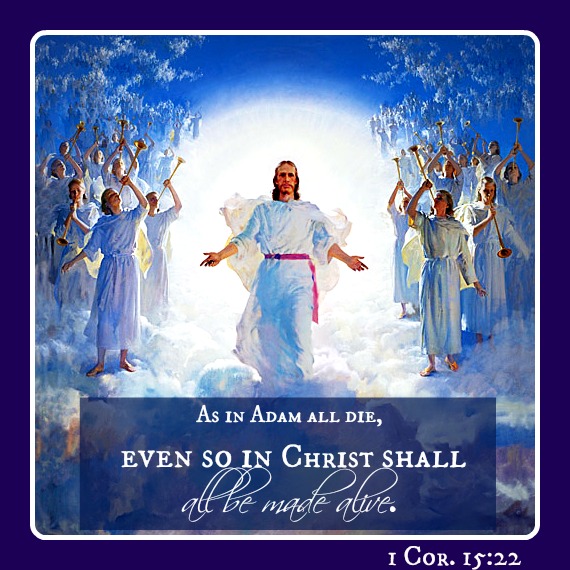 I believe that the miracle Jesus performed with Lazarus was what we writers call foreshadowing. He was making it publicly clear that he had the power to overcome death. But even those closest to Him could not have comprehended what that really meant and what was about to happen. To this day I still cannot comprehend it, but I know that it’s true. And that’s what clicked for me that particular Easter morning. Having loved ones dead and buried, I was filled with a sudden, undeniable joy to know that it was only temporary. Because Jesus Christ is the only Begotten Son of God the Father, and He paid the ultimate price, He was able to conquer death. And because He did that, death just doesn’t feel as daunting and ugly to me as it used to. I know that I will embrace my loved ones again—in the flesh. They will be whole and perfect, and so will I.
I believe that the miracle Jesus performed with Lazarus was what we writers call foreshadowing. He was making it publicly clear that he had the power to overcome death. But even those closest to Him could not have comprehended what that really meant and what was about to happen. To this day I still cannot comprehend it, but I know that it’s true. And that’s what clicked for me that particular Easter morning. Having loved ones dead and buried, I was filled with a sudden, undeniable joy to know that it was only temporary. Because Jesus Christ is the only Begotten Son of God the Father, and He paid the ultimate price, He was able to conquer death. And because He did that, death just doesn’t feel as daunting and ugly to me as it used to. I know that I will embrace my loved ones again—in the flesh. They will be whole and perfect, and so will I.
One of my favorite scriptures in the New Testament sums it up perfectly, “O death, where is thy sting? O grave, where is thy victory? . . . But thanks be to God, which giveth us the victory through our Lord Jesus Christ” (New Testament, King James Version, 1 Corinthians 15:55, 57).
This article was written by Anita Stansfield, a member of The Church of Jesus Christ of Latter-day Saints.
 Anita Stansfield began writing at the age of sixteen, and her first novel was published sixteen years later. For more than fifteen years she has been the number-one best-selling author of women’s fiction in the LDS market. Her novels range from historical to contemporary and cover a wide gamut of social and emotional issues that explore the human experience through memorable characters and unpredictable plots. She has received many awards, including a special award for pioneering new ground in LDS fiction, the Lifetime Achievement Award from the Whitney Academy for LDS Literature, and also a Lifetime Achievement Award from her publisher, Covenant Communications. She has fifty-six published books. Anita is the mother of five, and has three grandchildren.
Anita Stansfield began writing at the age of sixteen, and her first novel was published sixteen years later. For more than fifteen years she has been the number-one best-selling author of women’s fiction in the LDS market. Her novels range from historical to contemporary and cover a wide gamut of social and emotional issues that explore the human experience through memorable characters and unpredictable plots. She has received many awards, including a special award for pioneering new ground in LDS fiction, the Lifetime Achievement Award from the Whitney Academy for LDS Literature, and also a Lifetime Achievement Award from her publisher, Covenant Communications. She has fifty-six published books. Anita is the mother of five, and has three grandchildren.

